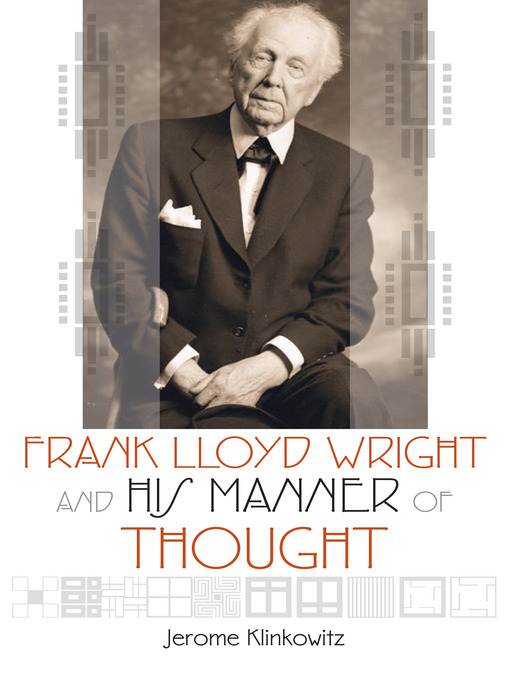-
Description
-
Details
-
Reviews
Klinkowitz presents a critical biography driven by the architect's own work and intellectual growth, focusing on the evolution of Wright's thinking and writings from his first public addresses in 1894 to his last essay in 1959. Did Wright reject all of Victorian thinking about the home, or do his attentions to a minister's sermon on "the house beautiful" deserve closer attention? Was Wright echoing the Transcendentalism of Ralph Waldo Emerson, or was he more in step with the philosophy of William James? Did he reject the Arts and Crafts movement, or repurpose its beliefs and practices for new times? And, what can be said of his deep dissatisfaction with architectural concepts of his own era, the dominant modernism that became the International Style? Even the strongest advocates of Frank Lloyd Wright have been puzzled by his objections to so much that characterized the twentieth century, from ideas for building to styles of living.
In Frank Lloyd Wright and His Manner of Thought, Klinkowitz, a widely published authority on twentieth-century literature, thought, and culture, examines the full extent of Wright's books, essays, and lectures to show how he emerged from the nineteenth century to anticipate the twenty-first.
Outstanding Book, selected by the American Association of School Librarians
Best Books for General Audiences, selected by the Public Library Reviewers

Kindle Book
- Release date: September 18, 2014
OverDrive Read
- ISBN: 9780299301439
- Release date: September 18, 2014
EPUB ebook
- ISBN: 9780299301439
- File size: 324 KB
- Release date: September 18, 2014
Open EPUB ebook
- ISBN: 9780299301439
- File size: 327 KB
- Release date: September 18, 2014

Loading
Formats
Kindle Book
OverDrive Read
EPUB ebook
Open EPUB ebook
Languages
English
